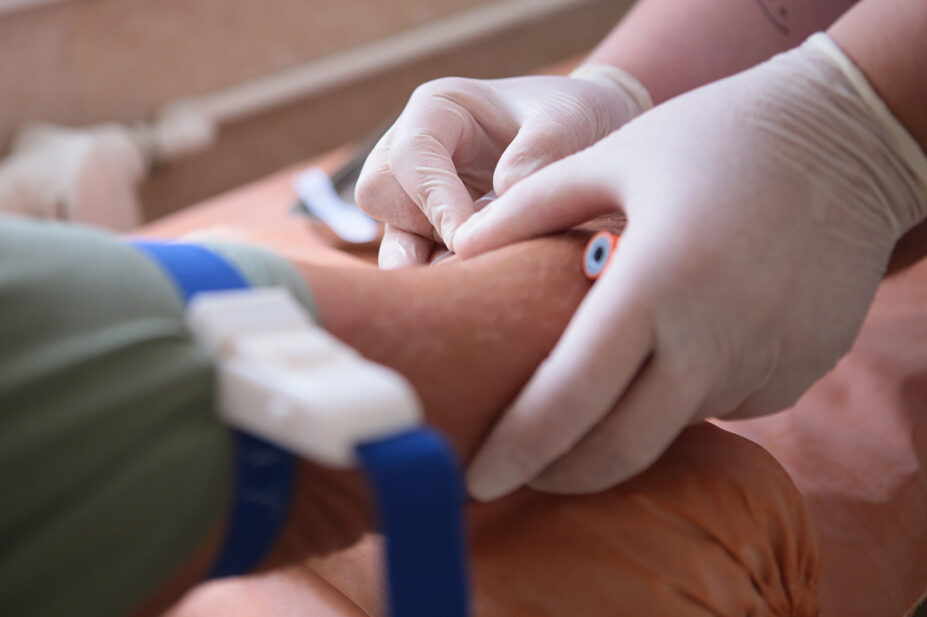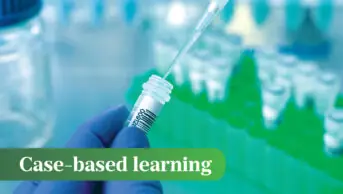
Shutterstock.com
As of September 2024, “more than 80” patients in Wales had received infusions of chimeric antigen receptor T (CAR-T) cells, with 50 of these infusions delivered from the University Hospital of Wales in Cardiff.
The figures were shared at the Royal Pharmaceutical Society (RPS) Wales Conference in Cardiff on 19 September 2024 by Eleri Schiavone and Hannah Crocker, lead medicines optimisation pharmacist and advanced therapy medicinal product (ATMP) outcomes programme manager, respectively, at NHS Wales Joint Commissioning Committee (NWJCC).
CAR-T, a type of ATMP, is a form of immunotherapy used to treat certain blood cancers. A sample of the patient’s blood is taken, and the T-lymphocytes in the blood are modified to recognise and destroy malignant cells. The modified blood is then administered to the patient.
Schiavone, who is also a member of the RPS Welsh Pharmacy Board, told The Pharmaceutical Journal: “We expect these [figures] to continue to rise as more patients are treated. There are also more therapies coming to market covering wider clinical indications, so we expect more and more patients to be eligible for ATMPs over the coming years, many of which are for diseases with little to no other treatment options.
“Our current estimate for the number of patients to receive CAR-T therapy per year is 25–30.”
In November 2019, John Davies became the first patient in Wales to begin personalised CAR-T therapy.
There are currently 13 ATMPs recommended by the National Institute for Health and Care Excellence for 15 indications, including haemophilia B and beta thalassaemia, both haemato-oncological conditions. In total, 100 patients in Wales have received an ATMP to date, including those treated with CAR-T therapy.
Commenting on the figures, Hilary Webb, senior policy and public affairs officer at Blood Cancer UK, said: “CAR-T therapy is a hugely promising treatment that uses the immune system to kill cancer cells. In some cases, it has cured people of their blood cancer where all other treatments have failed. Research to improve safety, scalability and to make this therapy more widely accessible is moving quickly and will bring us closer to a future where no lives are lost to blood cancer.
“We’re encouraging the Welsh government to consider the potential expansion of the stem cell transplant and CAR-T service in Cardiff. Currently, the service holds ten beds for these lifesaving blood cancer treatment for all adults in Wales and urgently needs expanding. Treatments like CAR-T can be lifesaving for those affected by blood cancer, and as blood cancer is the UK’s third biggest cancer killer, we must do all we can to improve outcomes for those affected.”
Also at the RPS Wales Conference, Elen Jones, director for Wales at the RPS, and Jonathan Simms, chair of the Welsh Pharmaceutical Committee, announced that RPS Wales would be taking the lead on the development of its updated three-year goals towards the 2030 vision for pharmacy in the nation, as outlined in ‘Pharmacy: Delivering a Healthier Wales’.
The vision — project managed by RPS Wales — was first published in 2019 with initial goals towards 2022. Since then, goals towards 2025 have been set, following consultation with the sector.
Following the conference announcement, Jones said: “Work on the new three-year goals will begin in early 2025.
“As always, we want to make sure the new goals reflect the views and ambitions of pharmacy teams in Wales. Therefore, we will be hosting a number of engagement events across Wales so that everyone has an opportunity to have their voice heard.”
- Read more: ‘Implementing chimeric antigen receptor T-cell therapy in practice‘ and ‘Advanced therapy medicinal products: a comprehensive overview for pharmacy professionals‘


